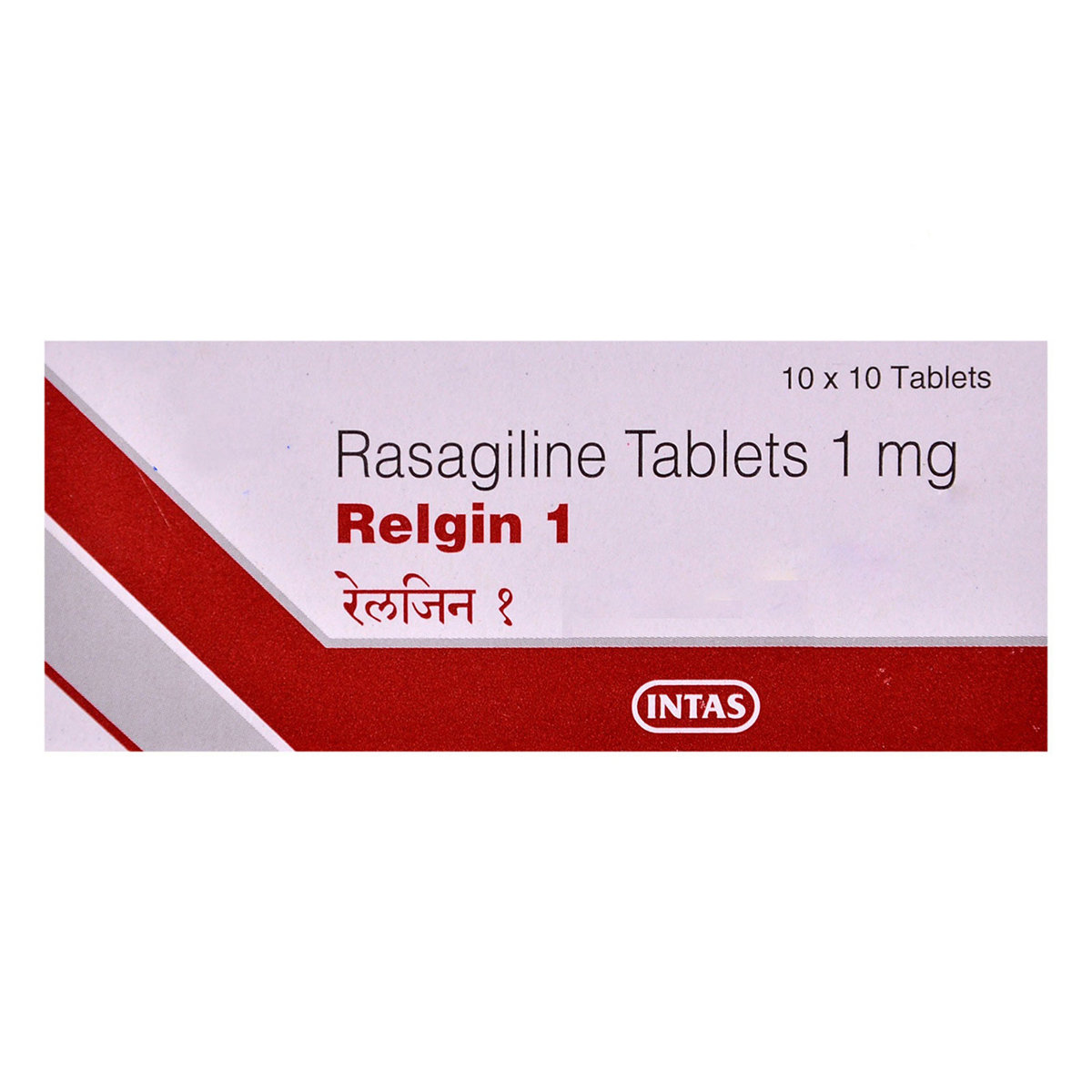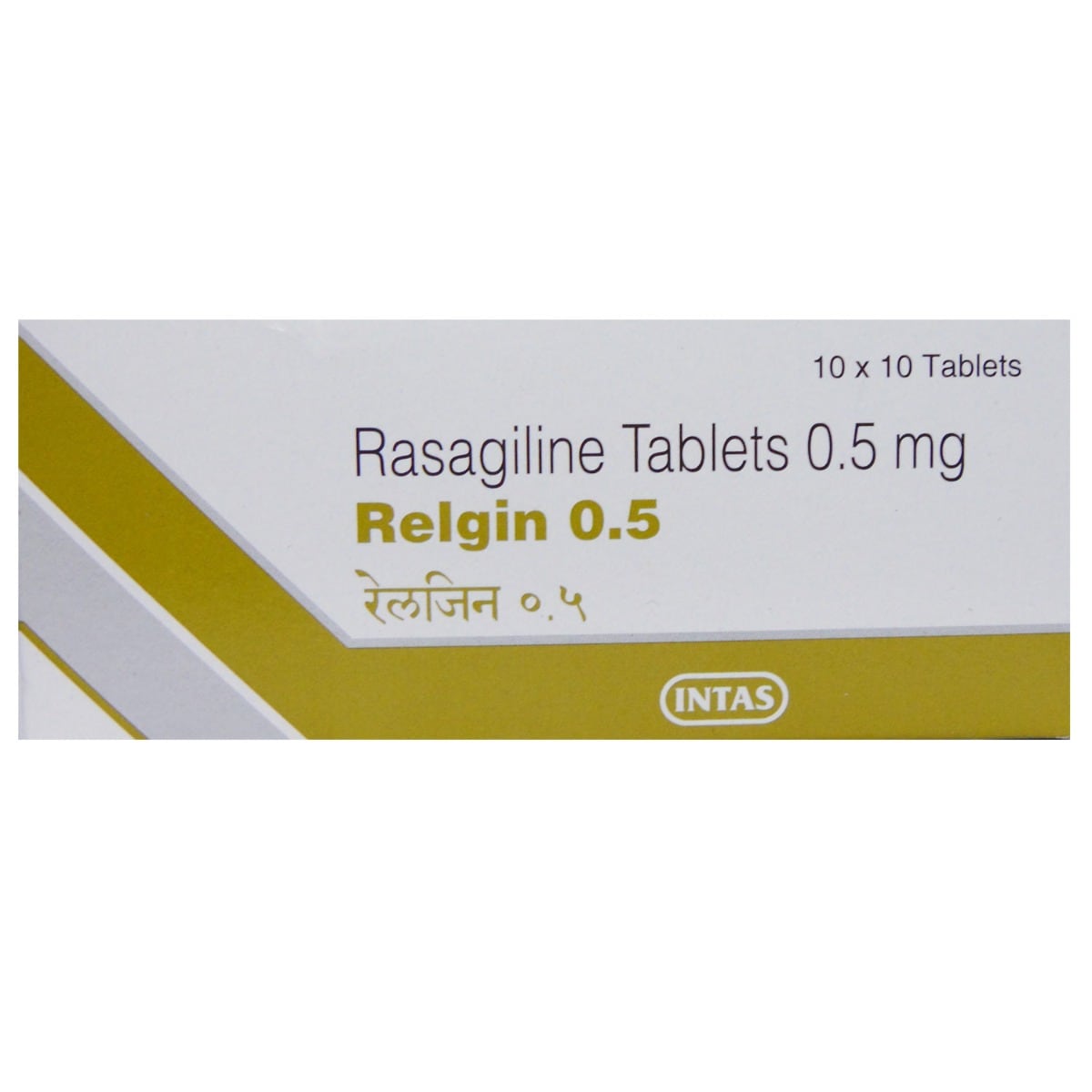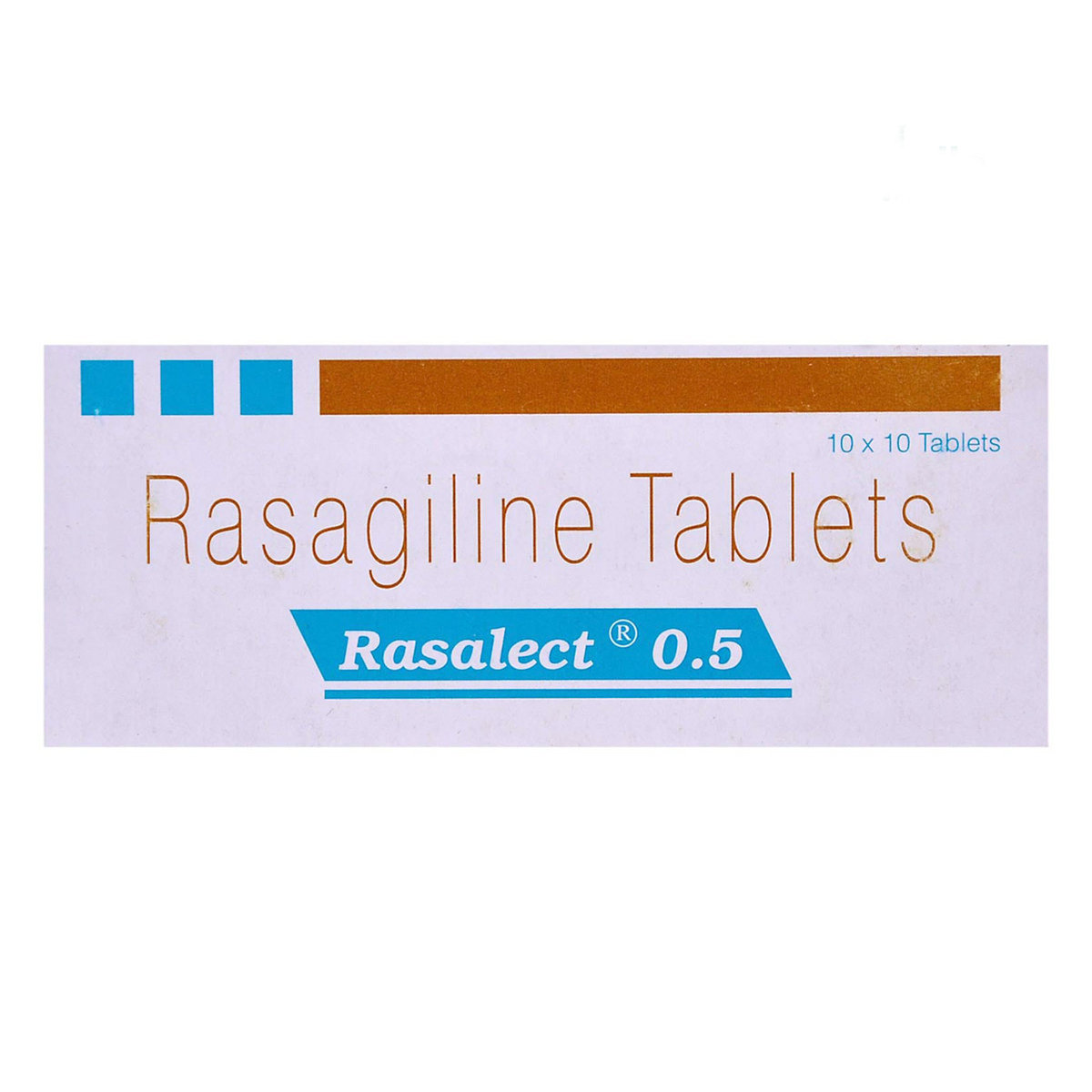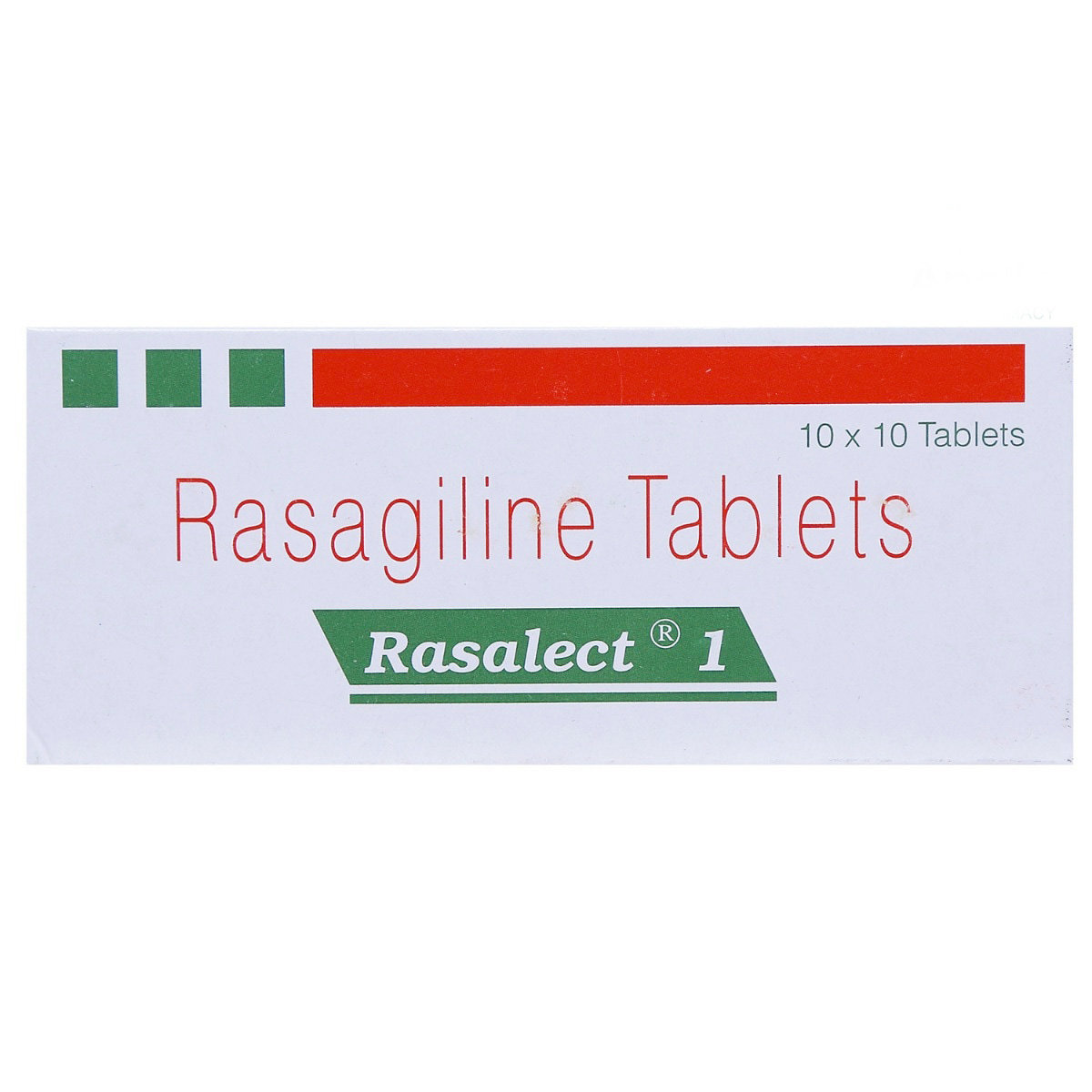Rasagiline
About Rasagiline
Rasagiline belongs to a class of antiparkinson agents. It is used alone or in combination with another medication to treat the symptoms of Parkinson's disease. Parkinson's disease is a condition in which regions of the brain gradually weaken over time. Parkinson's disease symptoms include involuntary shaking of certain body parts (tremors), sluggish movement, and stiff and inflexible muscles. In Parkinson's patients, there is a decrease in dopamine (a chemical messenger that is important for movement control) levels as the nerve cells that produce dopamine begin to die.
Rasagiline contains Rasagiline. It works by increasing the amount of dopamine, a chemical messenger needed to control movement in the brain. Thus, it helps treat the symptoms of Parkinson's disease.
Use Rasagiline as advised by your doctor. The most common side effects of Rasagiline are feeling sick, headaches, abdominal pain and high blood pressure. Most of these side effects of Rasagiline do not require medical attention and gradually resolve over time. However, if the side effects persist or worsen, please consult your doctor.
If you are known to be allergic to Rasagiline or any other medicines, please inform your doctor. If you are a pregnant woman or nursing mother, do not consume Rasagiline without first consulting your doctor. Inform your doctor before using the Rasagiline if you have a history of hypotension, hypertension, liver or kindly impairments. To rule out any negative effects/interactions, keep your doctor informed about your health condition and all medications you use. Avoiding alcohol is recommended to rule out any possibility of side effects like dizziness. Rasagiline is not recommended in children below 12 years of age.
Uses of Rasagiline
Medicinal Benefits
Rasagiline contains Rasagiline, an antiparkinson agent that is used in the treatment of Parkinson’s disease. In Parkinson’s patients, the nerve cells that produce dopamine (a chemical messenger that is important for movement control) begin to die. So, there is a decrease in dopamine levels. Rasagiline gets converted to dopamine in the brain and restores its levels. Thereby improving the symptoms of Parkinson’s disease.
Directions for Use
Side Effects of Rasagiline
- Feeling sick
- Headaches
- Lightheadedness
- Abdominal pain
- High blood pressure
- Vomiting
- Joint or neck pain
- Heartburn
- Constipation
- Diarrhoea
- Loss of appetite
- Fever
- Lack of energy
- Sleepiness
Drug Warnings
Before taking the Rasagiline, let your doctor know about all your allergic or hypersensitivity reactions to medicines or food. Keep your doctor informed about your health condition and all your medications before taking Rasagiline to rule out any side effects. Inform your doctor if you are suffering from hypotension, psychosis (psychotic disorder) and hepatic impairment. Limit or avoid the consumption of caffeine or alcohol intake.
Drug Interactions
Drug-Drug interactions: Rasagiline may interact with other medicines and may increase the side effects of the drug. Consult with the doctor if you are already taking any medicine or prescription medicine. Some of them include pain killers (amitriptyline, tramadol), antidepressant medications (sertraline, bupropion, mirtazapine), and selegiline (A drug used to help control the symptoms of Parkinson's disease (PD).
Drug-Food Interactions: Cut down the consumption of alcoholic beverages.
Drug-Disease Interactions: Rasagiline may interact with disease conditions, including hypotension, hypertension, heart conditions, mental/mood disorders and renal or hepatic (liver) conditions.
Drug-Drug Interactions Checker List:
Safety Advice

Alcohol
unsafeLimit or avoid alcohol consumption; alcohol consumption makes you feel sleepy or tired.

Pregnancy
cautionRasagiline is not recommended for use in pregnancy unless clearly necessary. So, inform your doctor if you are pregnant or suspect pregnancy before taking this medicine. Your doctor will weigh the benefits and potential risks before prescribing Rasagiline.

Breast Feeding
cautionRasagiline should not be used in nursing mothers unless clearly necessary. So, inform your doctor before taking this medicine if you are a nursing mother. Your doctor will weigh the benefits and potential risks before prescribing Rasagiline.

Driving
cautionRasagiline may cause a reduction in mental attentiveness; hence, avoid driving or using machinery.

Liver
cautionLet your doctor know before receiving Rasagiline if you have liver disease or have a history of liver impairment/disorder. Your doctor will prescribe only if the benefits outweigh the risks.

Kidney
cautionTell your doctor before receiving the Rasagiline if you have kidney problems or a history of liver diseases/conditions. Your doctor may adjust your dose depending upon your current kidney conditions.

Children
cautionRasagiline is not recommended for use in children under 18 years of age.
Habit Forming
Diet & Lifestyle Advise
- A balanced diet rich in vitamins, fibres, and minerals, such as grains and leafy greens, is essential for showing improvement in Parkinson's disease. In addition to this food, one should include dairy products, protein-rich foods like meat and beans, and solid fats like nuts, olive oil, fish, and eggs in their diet. However, limit your sugar intake.
- Constipation is a common complaint among Parkinson's disease patients. Drinking more liquids and increasing fibre intake can help you overcome this problem.
- Parkinson's disease is frequently caused by decreased bone thickness. Taking calcium and vitamin D supplements may help in this regard. However, before taking any supplements, consult with your doctor.
- One should drink a lot of water as a person with this disease often feels dehydrated.
Patients Concern
Disease/Condition Glossary
Parkinson's disease (PD) is also known as a movement disorder that mainly affects a person's ability to perform regular activities. It is a chronic and progressive disorder that can worsen with time if proper treatment is not provided at the right time. Some common symptoms faced by many persons include tremors at rest, stiffness of the limbs, slow movement, difficulty in movement or walking, and impaired balance. Other motor symptoms include trouble in solving problems, small handwriting, stooped posture, etc. This disease also affects the brain's ability to work properly, such as sleep disturbances, reduced ability to smell, depression, fatigue, and anxiety. However, the symptoms of this disease vary from person to person. There are certain neurons present in the brain that are responsible for making dopamine. This neurotransmitter helps to regulate the movement of the body. Loss of dopamine is supposed to be the primary reason for the occurrence of Parkinson's disease.
FAQs
Rasagiline contains Rasagiline, which works by increasing the amount of dopamine, a chemical messenger needed to control movement in the brain. Thus, it helps to treat the symptoms of Parkinson's disease.
Take Rasagiline medicine as prescribed by your doctor. Take one dose on a regular basis. Try to take the Rasagiline at the same time of day every day, as this will assist you in making sure to take them.
It is possible that a person may face unsteadiness or dizziness, particularly when they get up from a lying or sitting position while on treatment with Rasagiline. Getting up slowly may help.
A person dealing with Parkinson's disease can notice an improvement in their condition after some weeks of starting the treatment.
Do not double the dosage to compensate for a missed one. You can skip the missed portion and take the next dosage at the standard time of the following day.






